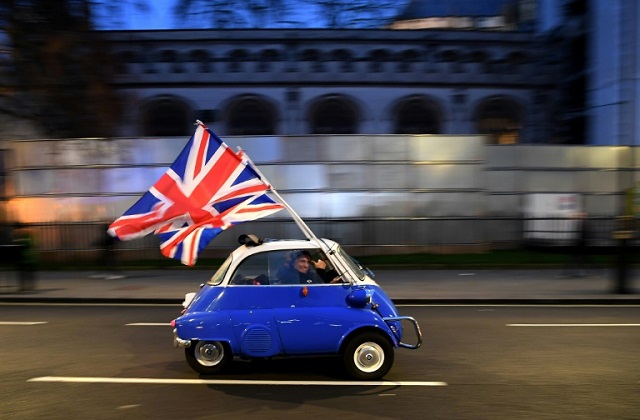
UK govt unveils sweeping coronavirus emergency laws
There have been 1,950 confirmed cases and 71 deaths in Britain
LONDON: Britain has unveiled sweeping emergency powers to deal with the spiralling coronavirus outbreak, including proposals allowing police to detain potentially infected people to be tested.
Details published on Tuesday night outlined sweeping new laws to be introduced in parliament on Wednesday that will give various public bodies tools and powers to respond to the pandemic.
There have been 1,950 confirmed cases and 71 deaths in Britain.
China reports just one new domestic virus infection
Developed in partnership with devolved governments in Scotland, Wales and Northern Ireland, as well as opposition parties in London, the legislation will be time-limited for two years.
It will allow the authorities to "switch on" the new powers when needed and switch them off again once they are no longer necessary, based on the advice of top medical officials.
"The Emergency Coronavirus Bill... will only be used when it is absolutely necessary and must be timed to maximise their effectiveness," Health Secretary Matt Hancock said.
The measures "give the government the powers it needs to protect lives", he added.
Some measures are not expected to come into force immediately, the health department said.
It called the proposals "temporary" and "proportionate", and insisted they would "only... be in place for as long as required to respond to the situation".
Britain has ramped up its response to the COVID-19 pandemic, after initially taking a more cautious approach than other countries.
Chief scientific adviser Patrick Vallance said Tuesday it was "reasonable" to estimate that 55,000 people inside the country could now have the virus.
On Monday Prime Minister Boris Johnson's government recommended household isolation, home-working and an end to mass gatherings to try to stem the rapidly accelerating outbreak.
It followed up with a huge package of support for businesses to help them survive the tough new social measures, including government-backed loans of at least £330 billion ($395 billion, 360 billion euros).
Johnson said his administration was now on a war footing.
The emergency powers will enable action in several key areas, from increasing the available health workforce and "easing the burden" on frontline staff to "managing the deceased with respect and dignity".
Other measures include giving people who volunteer to help care for patients in the health and social care sector additional employment safeguards enabling them to "pause" their main jobs for up to four weeks.
Britain's Border Force will be able to suspend operations at airports or transport hubs if there are insufficient resources to ensure security.
Courts, which have already suspended jury trials lasting more than three days in England and Wales, could make greater use of video hearings.
Police and other law enforcement officers will also get new powers to force people to be tested who they suspect have the virus.
"The bill will enable the police and immigration officers to detain a person, for a limited period, who is, or may be, infectious and to take them to a suitable place to enable screening and assessment," the health department guidance stated.
The legislation is expected to pass in the House of Commons unopposed, given the cross-party involvement in drawing it up, and become law before parliament goes into recess on March 31.
New coronavirus can survive on some surfaces for days: study
But some opposition lawmakers voiced concern at the sweeping nature and duration of the proposals. Some argued they should be regularly renewed by parliament.
Scottish National Party lawmaker Joanna Cherry wrote on Twitter: "Sweeping emergency powers have huge implications for #CivilLiberties.
"There must be meaningful parliamentary scrutiny including regular review by Parliament once the bill is passed."
1730545312-0/Express-Tribune-Web-(16)1730545312-0-270x192.webp)
1730537528-0/BeFunk_§_]-(26)1730537528-0.jpg)
1730540824-0/BeFunk_§_]-(28)1730540824-0.jpg)
1730541755-0/BeFunk_§_]-(29)1730541755-0.jpg)










COMMENTS
Comments are moderated and generally will be posted if they are on-topic and not abusive.
For more information, please see our Comments FAQ